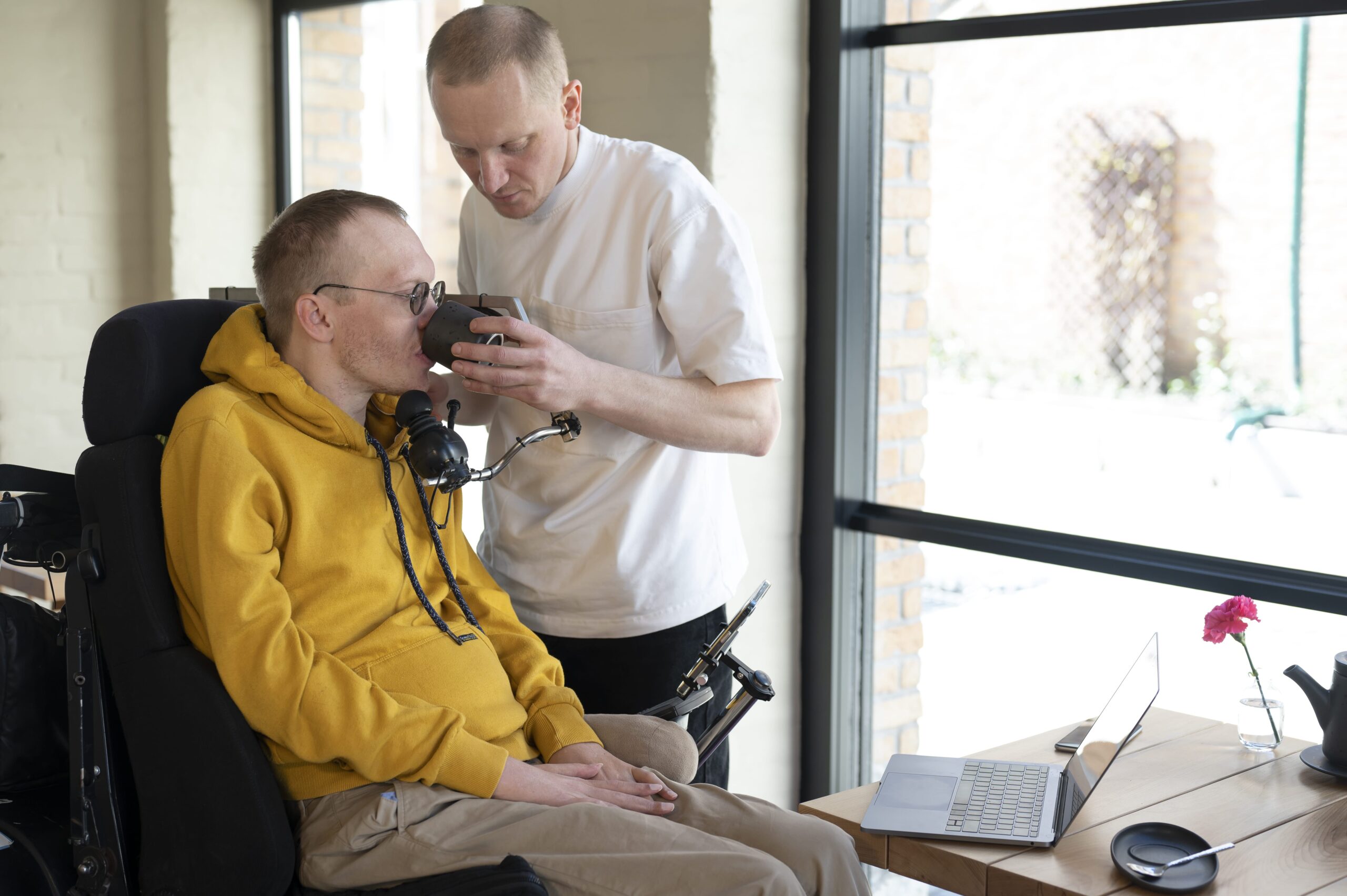You might be interested in an aged care worker career if you enjoy spending time with the elderly and caring for people. The elderly are given many different types of support as they age.
Providing personal hygiene assistance to an older adult, or providing transportation to someone unable to drive, may fall under this category.
Additionally, it can refer to the act of providing companionship to those who live with limited mobility and cannot go out for social activities as much as they would like.
In the aged care industry, the sector that lies alongside the healthcare industry but is not considered ‘primary care, people skills, empathy, and willingness to connect and care for older people are required.
The aged care sector is home to several jobs requiring particular skills. A three-year university degree can also be achieved through an online or TAFE course.
This article reveals the qualification needed to work in aged care in Australia with the job responsibilities.
What are the aged care job responsibilities in Sydney?
Community care workers report to nurses or work under their direction in residential or respite care. Over time, your role can shift from being a direct caregiver to overseeing team members or managing the entire operation.
Providing aged care can entail being tasked with the following duties or responsibilities:
- Providing mobility assistance
- Assisting with daily tasks
- Preparation of meals
- Organising social events
- Vacuuming or cleaning the house
- Maintaining their health
- Companionship and emotional support
- Participating in activities or going shopping
- Compatibility, kindness, and patience are the keys to supporting residents mentally.
- Complying with all age-related regulations and laws (both state and federal).
- Maintaining up-to-date knowledge by attending seminars and training on professional development.
Aging care roles can differ from one another. Caregivers can choose from various roles and responsibilities depending on their skills and personalities. Remember, personal carers can be caregivers.
A nursing position may also be available at a facility within the Aged Care Industry. A role with a community-based agency or respite care provider is also an option.
Start Your Rewarding Aged Care Career Today!
Enroll now and make a difference in the lives of the elderly. Begin your journey towards a fulfilling career in aged care.
What are the Qualifications Required for an Aged Care Worker?
You don’t need a certification to be hired as an aged care worker; it is an entry-level position. Since you provide direct client care, you must meet specific standards to work for an approved provider because you are classified as a “key personnel” under the Aged Care Act of 1997.
Qualifications and on-the-ground experience are essential to becoming an aged care worker. Training is provided in-person or online by registered training organisations, including vocational education and training (VET) courses, short courses, or traineeships.
You will be able to gain qualifications, skills, and training for age-care work by pursuing these education and practical pathways.
Aged Care Qualification & Courses
Aged Care workers can take these courses to qualify for employment:
- Certificate III in Individual Support (Ageing, Home and Community); Taking a course such as this would allow you to gain fundamental knowledge working with disabled people.
- Certificate IV in Aged Care; graduates of this course are trained in management, support, and working in an aged care environment.
- Certificate IV in Disability; possesses an understanding of the various needs of elderly and disabled individuals in aged care facilities.
- Certificate III Health Services Assistance; this is a specialisation for individuals who wish to pursue nursing in the aging services field.
- Certification III in Individual Support (Aging)
- Certification IV in Preparation for Health and Nursing Studies.
Understanding the industry: A look at Australian salaries for aged care
People interested in caring for others fill the aged care industry, and that’s a good start. Ultimately, a successful career depends on a rewarding salary. The question is: how much do aged care workers make?
A worker’s salary will vary from region to region in Australia. Hence, the latest Fair Work Ombudsman pay guide estimates a full-time aged care worker can earn between $801.40 and $973.40 per week, depending on their employee level.
Many aged care workers live on the premises or work evenings, weekends, and public holidays in private homes and community establishments.
Aged care workers have a great job outlook. The total number of jobs added to this industry from 2014 to 2019 was 45,800 (about 35%). The Australian population is aging, which will lead to increased demand for aged care workers.
The time is perfect for entering the healthcare industry due to the global pandemic. There is a high demand for aged care workers. Due to its many entry-level positions, the aged care industry is a great place to start a career if you are considering a career in the aged care industry.
In residential establishments, clinics, hospitals and private residences, aged care workers provide care, supervision and support to the elderly.
Care for personal needs, household duties, and illness management are some of the tasks they perform. Additionally, they promote independent living, community participation, and companionship.
Expand Your Opportunities in Aged Care
What do you do as an aged care worker?
Australia’s older population can experience difficulties carrying out ordinary tasks daily, requiring assistance. Frontline staff members who assist the elderly in achieving their goals and enhancing their quality of life are known as aged care workers.
Assisted living workers, personal care workers, or caregivers can visit older people at home or work with them in an aged care facility and help them with all the chores and activities required to remain independent.
Your assistance will determine whether a client has low or high care needs. Inadequate care may be appropriate if a client needs only essential help around the home, such as cleaning, tidying, gardening, or transportation to medical appointments or social gatherings.
The services can be similar in residential care, with the additional benefit of a carer always nearby.
In some cases, aged care workers assist their clients by attending social events or taking them out to cafes and excursions with their friends and relatives.
A caregiver can provide personal care to residents, including showering, bathing, and dressing assistance.
On the other hand, higher-care clients may need assistance preparing food and drinking.
Care staff may need to perform more clinical duties, including managing medications, dressing wounds, assisting with light physiotherapy exercises or providing mobility equipment.
In addition, caregivers should be able to detect any uncharacteristic changes in the behaviour of their clients, which can help identify any possible risks.
Care for the elderly: Responsibilities
Despite similar responsibilities and roles, the significant difference is the level of care and commitment each position provides to improve the lives of older residents and clients.
Another essential aspect of leadership is to lead by example. A cohesive team is critical for older residents and clients to receive aged care services. Every aged care organisation and service should have various skills and experiences available.
Aged Care Workers are responsible for organising and facilitating activities designed to improve the different types of well-being, including emotional, social, and physical well-being.
From games and gardening to reading and gentle exercise, Aged Care Workers help to ensure their elderly charges are cared for, happy and connected.
Can you demonstrate the suitable characteristics and traits to become an Aged Care Worker? Would you like to work in an aged care facility? Would a rewarding and stable career in this field appeal to you?
Having a nationally recognised VET qualification will help your career prospects even though it isn’t strictly necessary to start working in aged care.
As part of Certificate III, you’ll also have the opportunity to participate in 120 hours of work placement. Therefore, you will gain hands-on experience, and you might even land a job.


